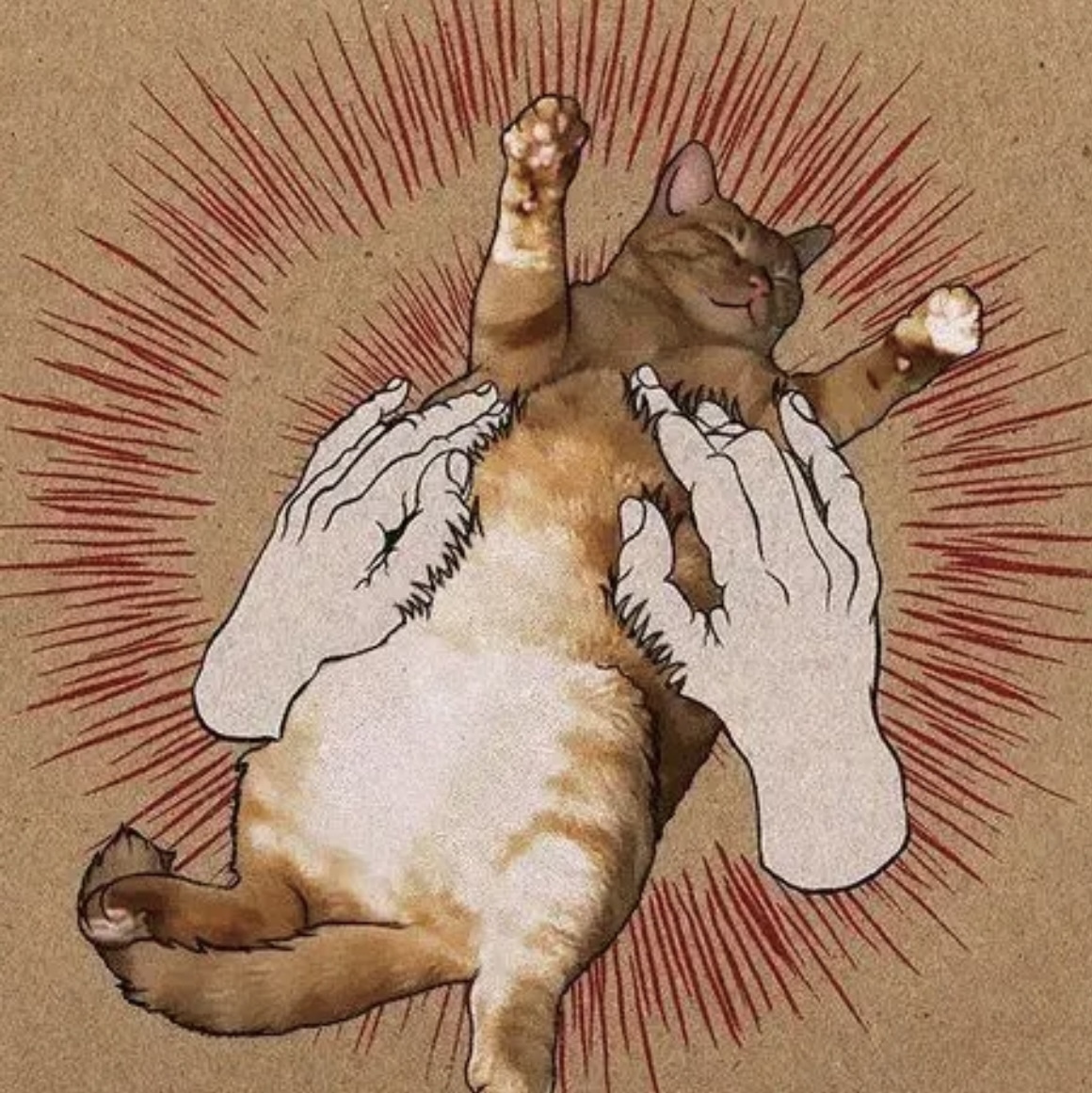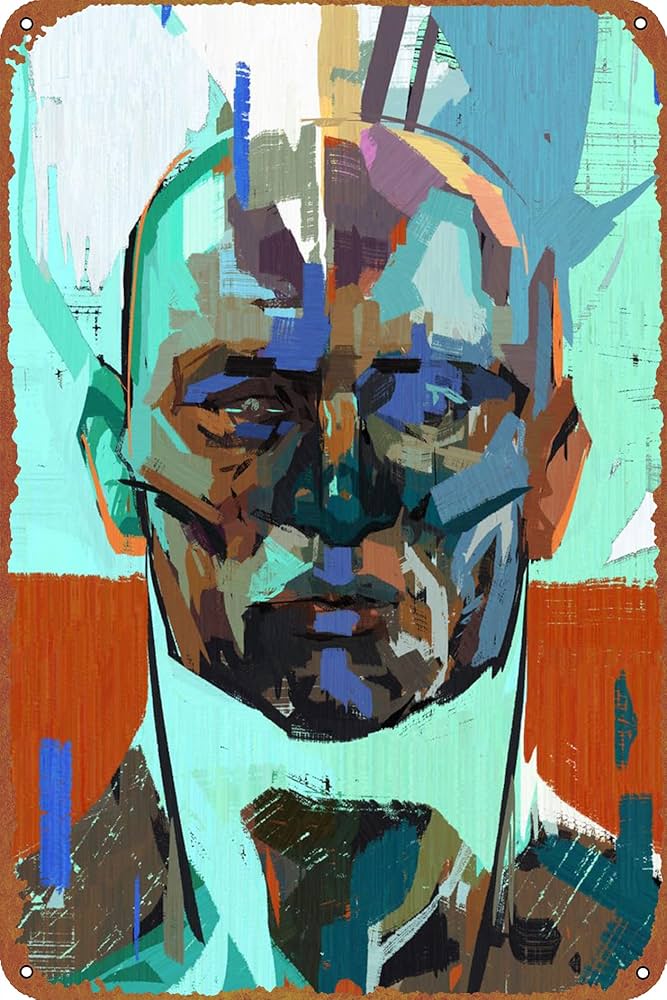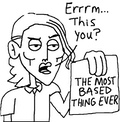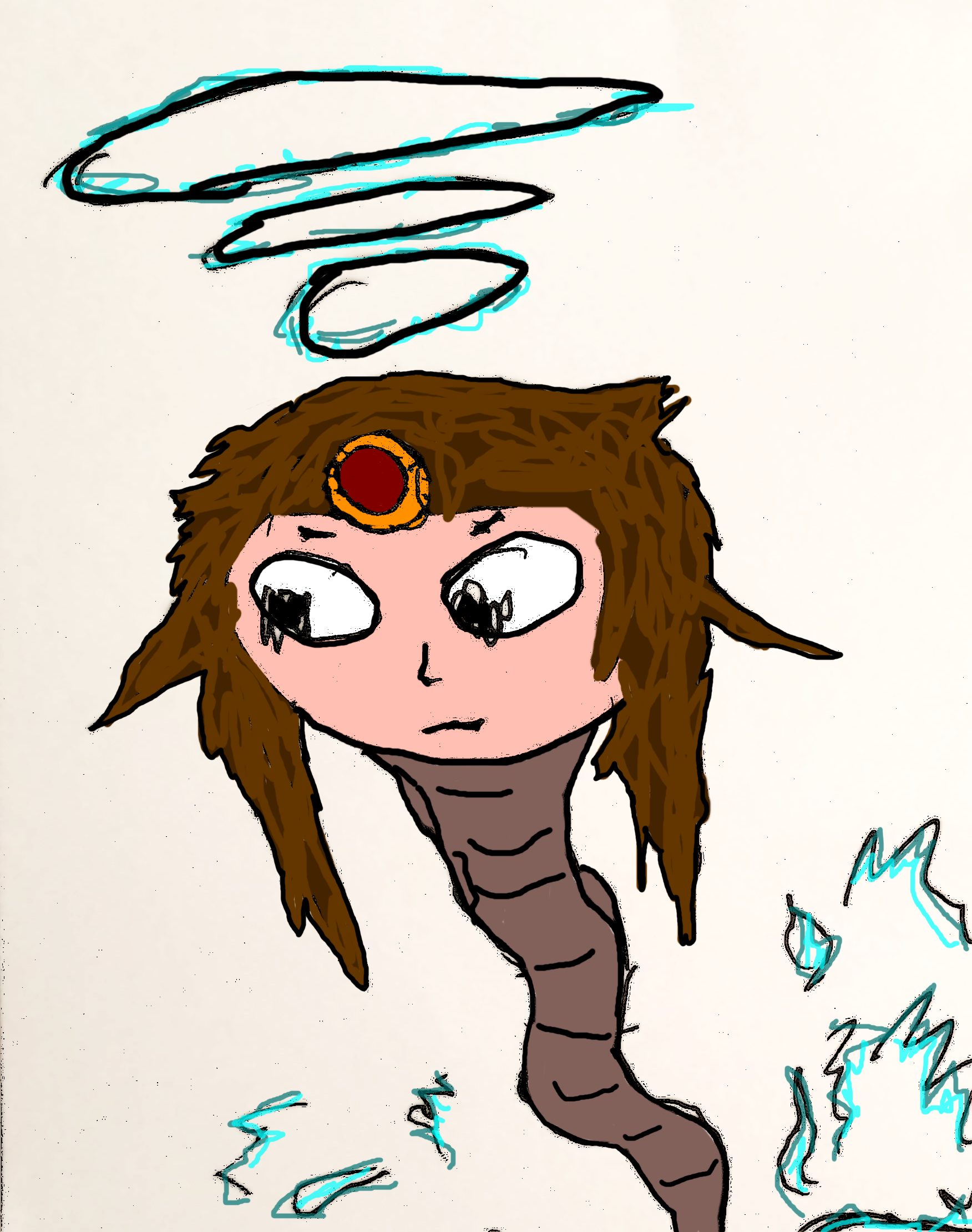A new week, a new mega! Welcome all disabled comrades. As always, we ask that in order to participate in the weekly megathread, one self-identifies as some form of disabled, which is broadly defined in the community sidebar:
“Disability” is an umbrella term which encompasses physical disabilities, emotional/psychiatric disabilities, neurodivergence, intellectual/developmental disabilities, sensory disabilities, invisible disabilities, and more. You do not have to have an official diagnosis to consider yourself disabled.
What is Disability Justice?
… In 2005, disabled queers and activists of color began discussing a “second wave” of disability rights. Many of these first conversations happened between Patty Berne and Mia Mingus, two queer disabled women of color who were incubated in progressive and radical movements which had failed to address ableism in their politics. Their visioning soon expanded to include others including Leroy Moore, Stacey Milbern, Eli Clare and Sebastian Margaret. These conversations evolved over time, at conferences, over the phone, formal and informal, one-on-one and in groups.
While every conversation is built on those that came before it, and it’s possible that there were others who were thinking and talking this way, it is our historical memory that these were the conversations that launched the framework we call disability justice.
Given the isolation enforced by ableism and capitalism, many of us have often found ourselves as leaders within our various communities, yet isolated from in-person community with other disabled people of color or queer or gender non-conforming crips. Many of us have found “liberated zones” online that celebrate our multiple identities. Disability justice is a developing framework that some call a movement. We are still identifying the “we,” touching each other through the echoes of each other’s hopes and words.
Given this early historical snapshot, we assert that disability justice work is largely done by individuals within their respective settings, with Sins Invalid and the Disability Justice Collectives based in NYC, Seattle, and Vancouver, B.C., being notable exceptions. These groups and organizing structures often come into being, fall apart and regroup with different names and configurations over time. Online groups like Sick & Disabled Queers can offer opportunities for people with disabilities to communicate and create new norms together. Some voices may emphasize a specific aspect of disability justice over another, which can be expected in all early movement moments. However, what has been consistent across disability justice - and must remain so - is the leadership of disabled people of color and of queer and gender non-conforming disabled people.
Disability justice activists, organizers, and cultural workers understand that able- bodied supremacy has been formed in relation to other systems of domination and exploitation. The histories of white supremacy and ableism are inextricably entwined, created in the context of colonial conquest and capitalist domination. One cannot look at the history of US slavery, the stealing of Indigenous lands, and US imperialism without seeing the way that white supremacy uses ableism to create a lesser/“other” group of people that is deemed less worthy/abled/smart/capable. A single-issue civil rights framework is not enough to explain the full extent of ableism and how it operates in society. We can only truly understand ableism by tracing its connections to heteropatriarchy, white supremacy, colonialism, and capitalism. The same oppressive systems that inflicted violence upon Black and brown communities for 500+ years also inflicted 500+ years of violence on bodies and minds deemed outside the norm and therefore “dangerous.”
Furthermore, racism, anti-Islamic beliefs, ableism and imperialism come together to feed us images of the “terrorist” as a dangerous Brown enemy… All this is compounded by the ways ableism, along with queer-hatred and the violence of the gender binary, label our bodies and communities as “deviant,” “unproductive,” and “invalid.”
A disability justice framework understands that:
- All bodies are unique and essential.
- All bodies have strengths and needs that must be met.
- We are powerful, not despite the complexities of our bodies, but because of them.
- All bodies are confined by ability, race, gender, sexuality, class, nation state, religion, and more, and we cannot separate them.
These are the positions from which we struggle. We are in a global system that is incompatible with life. The literal terrain of the world has shifted, along with a neo-fascist political terrain. Each day the planet experiences human-provoked mudslides, storms, fires, devolving air quality, rising sea levels, new regions experiencing freezing or sweltering temperatures, earthquakes, species loss and more, all provoked by greed-driven, human-made climate chaos. Our communities are often treated as disposable, especially within the current economic, political and environmental landscapes. There is no way to stop a single gear in motion — we must dismantle this machine.
Disability justice holds a vision born out of collective struggle, drawing upon legacies of cultural and spiritual resistance. Within a thousand underground paths we ignite small persistent fires of rebellion in everyday life. Disabled people of the global majority — Black and brown people — share common ground confronting and subverting colonial powers in our struggle for life and justice. There has always been resistance to all forms of oppression, as we know in our bones that there have also always been disabled people visioning a world where we flourish, a world that values and celebrates us in all our beauty.
Source: Sins Invalid
Mask up, love one another, and stay alive for one more week.
I’m realizing that my brain works faster than body (can think of things to say but the words come out of mouth slower thank I can think), and it makes me feel trapped. Idk whether this is autism or something else but it causes crippling anxiety
I occaisionally get something that sounds similar as a symptom of bipolar disorder. It’s called “racing thoughts” and describes times when i’m experiencing a flood of fast thoughts that change topic wildly and often feel like they’re pouring in to my “i think therefor I am” conscious mind from other parts of my brain. It can be very distressing, both because it is so disruptive to thinking and doing the things I need to do, and because it tends to come with "pressured speech, an impulsive need to sat everything i’m thinking and talk continuously.
talking about how I've never really accepted that I'm disabled? you may have heard this all before
So I don’t have one visible, defining disability, but I have plenty of small physical and significant mental things that affect me. I’m visually impaired, that’s the most obvious - I’m shortsighted and have astigmatism, and I have to always wear glasses to function. That’s an easily treatable disability that is not stigmatized, and barely even seen as a disability by most.
I’m also slightly hard of hearing and I have weird feet (dunno if that’s a disability? I need specific shoes or I’ll be in pain when I walk for extended periods of time). I used to get ingrown toenails because normal shoes made me stand and walk weirdly.
I’ve also had kinda weak lungs for basically no reason. When I was like 15 I had a bad coughing fit at the beach once, and it’s just never stopped. Every now and then I have to cough a lot, like way more than any healthy person. Nobody knows what’s up with that.
That brings me on to long covid. The coughing got way worse ever since I got covid for the second time this summer. Also I’ve lost most of my sense of smell.
Then there’s the mental list of neurodivergence and mental illness. ADHD, autism, depression, anxiety. These all greatly impact me.
But for some reason - I guess because no one ever said it to me - I have never identified as disabled. No one ever said “Moss, you are disabled”, so I just assumed I wasnt. I obviously am, in a lot of minor ways, but people think disability is just needing a wheelchair. It’s only in the past couple months that I’ve actually had the realization that I am disabled and always have been. I had (and still have) a lot of reactionary brainworks around disability to excise.
Weed really helps relieve my ME/CFS symptoms. I smoke it now but I’m going to see if I can get some low dosage edibles to keep my lungs healthy.
just in case edibles don’t work out for you, vaping can also be a lot easier on the lungs, particularly if you do it through water
😩been putting off laundry because my knees and back hurt
Turns out having a job i dont hate makes me want to do bad things to myself less. Waow
deleted by creator
People at my school are posting “make sure to take care of yourself post election 🥺 drink water and do self care” stuff on discord. All these people who walk around who haven’t been masking since 2022, just shaking as if the Democrats haven’t killed at least a million people from their COVID policies alone. This is what got me to finally leave the Disabled Students Union server. Cry me a river.
I posted the PFLP’s statement on the election to my COVID club’s group chat because I’m not having any of that in the student group I run lolll.
incandescent rage at the welfare system today. in my country it’s very transparently a capitalist humiliation ritual designed to remind you that you are part of an underclass seen as subhuman. i managed to get one payment but the state owes me another 3 that “expired” because i didn’t go in time, apparently i am still entitled to the money just more hoop-jumping required. genuinely at the end of my tether.
Same here. I’m a partially sighted stroke and cancer patient. Multiple doctors have written to the DWP (Nazis who run the British benefits system) on my behalf, requesting them to give me a 10 year benefit award (the maximum possible even if you have an incurable disease like Parkinsons, Alzheimers, MS, etc). Still the most they’ve ever given me, after a lengthy and stressful appeal, was 4 years. However the appeal took nearly a year and that year was knocked off the total. They’re allowed to start assessing you a year before the award ends, which they did, so really my 4 years was actually 2 years before the stressful assessment process started again.
I’m still having cancer treatment, with life-ruining side effects, I’m still learning to walk again after the stroke and I’m still adjusting to becoming partially sighted. Multiple doctors have told them my health won’t improve any time soon. Why are they re-assessing me so frequently? Why did they give me zero points the last time and stop my money? The DWP are saying they have a 10 year backlog of claims to get through. So why don’t they stop giving people such short awards and assessing us so frequently? I could tolerate life, even though it’s painful and miserable, if it wasn’t for the endless poverty. It’s the frequent assessments and appeals, the low payments when I do get them, and the constant threat of having my benefits stopped permanently, that makes me suicidal.deleted by creator
I’m truly worried I’ll end up like one of the many ill and disabled people I’ve read about in the news who are forced back to work by having their benefits stopped and then drop down dead at work. Or one of the multiple benefit claimants who have starved to death or committed suicide. It really does seem like a genocide of the disabled.
deleted by creator
Thanks. I wish I could join in with organising and agitation but my every waking moment is consumed with fighting my benefit appeal, trying to stave off homelessness and trying to get enough food.
deleted by creator
ME posting:
- I have to lie in bed at least 14 hrs a day and most days more. Now as I have lost significantly amount of muscle due to inactivity it’s become less comfortable to be in bed for so long.
- not being able to help friends and family as much and being so dependent on other people is hard. I used to cook for my family and now I can’t even cook for myself so they have to do it for me. Being able to do such things for my family was a source if pride and happiness and now I have lost that which sucks.
- I’m fucking lonely because I don’t see anyone else most days
jfc everything hurts so fucking bad, it should be illegal to have arthritis in your 30s

Told my friends I was lonely and now they visit me once a week which is nice.
deleted by creator
I don’t have a disability, but my partner does. Is this a good place to rant when the machinations of the system seem bent on socially murdering them?
Rule 1 states this comm is open to everyone, and in fact I’d even encourage you and others in your position to share your stories if you want.
Also

yes

sad shit
i saw something recently abt how cfs that doesn’t resolve within two years is usually permanent and im nearing that point. and it rly feels like CFS/LC stole my transition from me, i just do not have the energy needed for people in my life to take me seriously and it sucks.


From one cfs have to another, I feel you. Especially the not having enough energy for people to take me seriously part. I’m sorry you’re dealing with this.
I recently had a weird talk with a therapist I ahve been thinking about. In thr in take forms I checked that I have no history of mental illness. I reported my ADHD in thr history. She was like, “so you are mentally ill” and I said I not ill I am just adapted to a diffrent environment. There was an awkward silence
I get why your average Joe thinks of ADHD and autism as mental health conditions but for a therapist this is absolutely unacceptable imo. ADHD is a neurodevelopmental disorder. It is not a mental illness. It is an abnormality in the way your brain develops and functions on a basic level.
If someone had a stroke and lost their ability to speak, calling that a mental illness is gross and pretty infuriating. If someone has a physical disability, referring to that as a sickness would be completely unacceptable and downright offensive.
But apparently it’s okay for professionals in the field to talk about neurodevelopmental disorders as illnesses?
NYT with a “no shit” article: When Chronic Diseases Come With Chronic Financial Pressure
Some statistics in the article:
- 129 million USians “deal with a major chronic disease”
- 30% of “adults reported not taking medications as prescribed over the past year because of cost”
- 40% of adults have at least two chronic conditions
- Women are more likely than men to have chronic conditions, and “women and people with disabilities are particularly likely to skip or delay medication because of financial concerns”

















